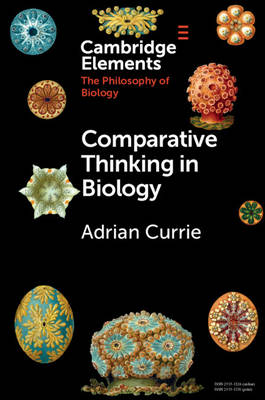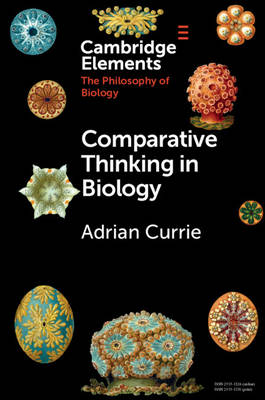
- Afhalen na 1 uur in een winkel met voorraad
- Gratis thuislevering in België vanaf € 30
- Ruim aanbod met 7 miljoen producten
- Afhalen na 1 uur in een winkel met voorraad
- Gratis thuislevering in België vanaf € 30
- Ruim aanbod met 7 miljoen producten
Zoeken
Omschrijving
Biologists often study living systems in light of their having evolved, of their being the products of various processes of heredity, adaptation, ancestry, and so on. In their investigations, then, biologists think comparatively: they situate lineages into models of those evolutionary processes, comparing their targets with ancestral relatives and with analogous evolutionary outcomes. This element characterizes this mode of investigation - 'comparative thinking' - and puts it to work in understanding why biological science takes the shape it does. Importantly, comparative thinking is local: what we can do with knowledge of a lineage is limited by the evolutionary processes into which it fits. In light of this analysis, the Element examines the experimental study of animal cognition, and macroevolutionary investigation of the 'shape of life', demonstrating the importance of comparative thinking in understanding both the power and limitations of biological knowledge.
Specificaties
Betrokkenen
- Auteur(s):
- Uitgeverij:
Inhoud
- Aantal bladzijden:
- 100
- Taal:
- Engels
- Reeks:
Eigenschappen
- Productcode (EAN):
- 9781108727495
- Verschijningsdatum:
- 18/02/2021
- Uitvoering:
- Paperback
- Formaat:
- Trade paperback (VS)
- Afmetingen:
- 152 mm x 229 mm
- Gewicht:
- 122 g

Alleen bij Standaard Boekhandel
+ 66 punten op je klantenkaart van Standaard Boekhandel
Beoordelingen
We publiceren alleen reviews die voldoen aan de voorwaarden voor reviews. Bekijk onze voorwaarden voor reviews.








